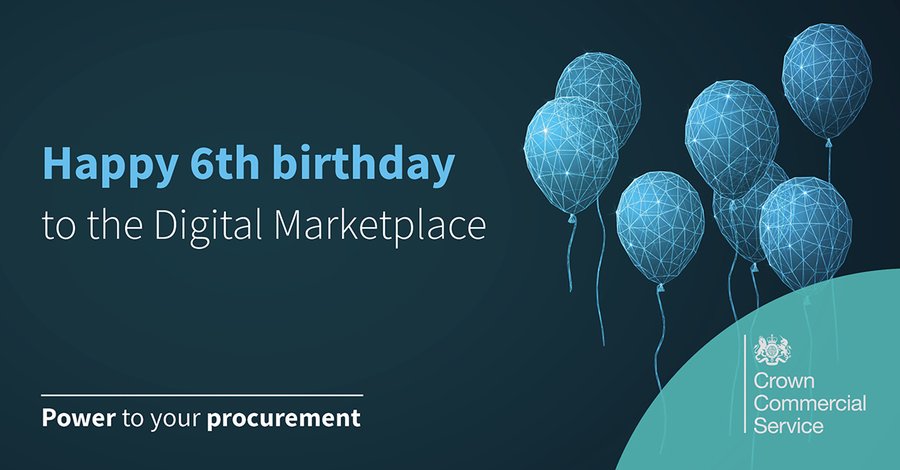It’s been an interesting 12 months since Digital Marketplace’s last birthday, not least because I’ve since moved team to GOV.UK Pay. I intend to post more about my new team later this month, but after three years of procurement fun I should say a proper goodbye to DMP first.
I’m so proud of the DMP team and the achievements they made this year in difficult circumstances (people moves, lockdown, fake services, incidents, illness, ansible versions mysteriously disappearing etc).
A huge amount of work went into making the frontend code more accessible, following the patterns and components from GOV.UK Design System and sprucing up some of DMP’s existing custom components. G-Cloud 12 was a bit of a bumpy ride for everyone, but the team managed to deal with the issues that came up and get the framework out on time.
I think the highlight was launching electronic-signatures for the agreement signing process. This was a massive time-saver for users, who previously had to print off a PDF, sign it with a pen, scan it in and finally upload it (argh), after which an admin had to carefully check the scanned PDF was the right way up, that it actually had a signature on it, and that the user hadn’t mistakenly uploaded a blank document/cat picture/etc. This process would take weeks, so it was quite thrilling on launch day to watch the number of valid signed agreements racing upwards in a matter of hours! The process now looks almost trivial from the user’s side (a sign of a well-designed and tested feature!), but I can assure you there was a lot of furious paddling going on beneath that calm surface.
I learned so much during my three-and-a-bit years on DMP: technical skills, leadership skills, programming best practices and the difference between a ‘brief’, a set of ‘requirements’ and an ‘opportunity’1. I learned all those things from the great people I worked with - you know who you are; thank you. And happy birthday, folks!
1Trick question! They’re all the same thing, but seen from a different perspective. A buyer user has a set of requirements for the thing they want to buy. A supplier user sees those requirements as an opportunity. Developers refer to both the above things as a brief, ‘because it’s shorter’.
